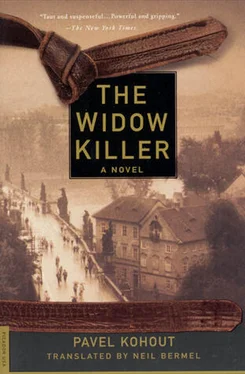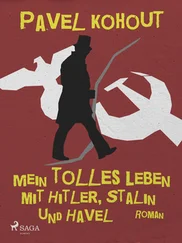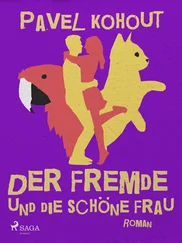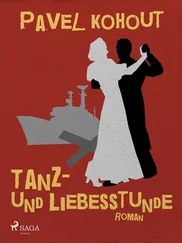Pavel Kohout - The Widow Killer
Здесь есть возможность читать онлайн «Pavel Kohout - The Widow Killer» весь текст электронной книги совершенно бесплатно (целиком полную версию без сокращений). В некоторых случаях можно слушать аудио, скачать через торрент в формате fb2 и присутствует краткое содержание. Год выпуска: 2007, Издательство: St. Martin's Press, Жанр: Современная проза, на английском языке. Описание произведения, (предисловие) а так же отзывы посетителей доступны на портале библиотеки ЛибКат.
- Название:The Widow Killer
- Автор:
- Издательство:St. Martin's Press
- Жанр:
- Год:2007
- ISBN:нет данных
- Рейтинг книги:5 / 5. Голосов: 1
-
Избранное:Добавить в избранное
- Отзывы:
-
Ваша оценка:
- 100
- 1
- 2
- 3
- 4
- 5
The Widow Killer: краткое содержание, описание и аннотация
Предлагаем к чтению аннотацию, описание, краткое содержание или предисловие (зависит от того, что написал сам автор книги «The Widow Killer»). Если вы не нашли необходимую информацию о книге — напишите в комментариях, мы постараемся отыскать её.
The Widow Killer — читать онлайн бесплатно полную книгу (весь текст) целиком
Ниже представлен текст книги, разбитый по страницам. Система сохранения места последней прочитанной страницы, позволяет с удобством читать онлайн бесплатно книгу «The Widow Killer», без необходимости каждый раз заново искать на чём Вы остановились. Поставьте закладку, и сможете в любой момент перейти на страницу, на которой закончили чтение.
Интервал:
Закладка:
Only now did he fully remember what happened in that apartment. While he was doing it, he’d been curiously detached, as if an outside force were directing him. He had neither felt nor perceived anything he had said, seen, or done. But it had all been recorded, and now it began to play itself back, like a film rewound to the beginning.
The past became present; the sun and the river vanished: now, in the twilight of the room, he relived each of his movements, noticed each of her reactions. And he marveled at his calm and efficiency as he quickly and precisely performed a horribly complex task. No, he was no longer a third-rate hack from Brno; in those lean, empty years he had matured into a master, just like that unknown painter.
She must have sensed it as well. The whore in Brno had squirmed and squealed like a crazy woman, even fouled herself — ugh! that was what had repulsed him most afterward — while this woman had immediately recognized his AUTHORITY. Maybe she wouldn’t have screamed without the gag, but he couldn’t have risked it. He couldn’t tell when her life ended, because even in death her doglike stare followed him. Now he had finished the task, and when he stepped back, he saw that IT WAS GOOD.
The film ended, the lights came up, and the river was back again. He was even more tired after this rest than he had been before it. Sternly he ordered his muscles to pull him upright and grab his satchel. Now he had to find a place in this unfamiliar city where he could inform the ONE who gave him the task that it was complete.
Through a blast-shattered window the chill day entered the room. Its pungent air stilled his stomach. Meanwhile, Assistant Detective Morava mustered his strength, as he had often done before, so he would not look inexperienced in front of the Germans. There were six of them, all but one clad in the long leather coats that had become the secret police’s civilian uniform in the Protectorate. Their apparent leader was a giant whose chest threatened to split his coat open.
Morava introduced himself. They merely nodded expectantly, which he took as permission to go about his business. Briskly he pulled out a folded tablet and opened it to a clean page, so he could take notes for a later briefing, as Beran had taught him: the pathologists may laugh at it, Morava, but this is how we get the human picture before it disappears under a mountain of professional jargon.
The Germans left him alone, conferring among themselves sotto voce, as if they didn’t want to disturb him. He watched them in his peripheral vision as he worked, trying to guess what they might want from him. At least it prevented him from devoting his full attention to the gruesome spectacle on the table.
Only the civilian in the beige overcoat acted like a detective; he silently watched Morava wade through the mosaic of fine shards around the table with the woman’s torso on it, filling the pages of his notebook with tiny handwriting. However, when Morava finished, it was the hefty one who addressed him. The man’s high Gestapo rank was almost palpable; he stood, feet apart, and planted his hands on his hips in imitation of his Führer.
“Your opinion?”
Morava answered as concisely as possible, the way he’d been taught.
“A sadistic murder.”
“We figured that out already,” the German snarled at him. “Any other bright ideas?”
Morava had always found it difficult to talk to people who raised their voices. His windbag of a father had labeled him a scaredy-cat, and this reputation followed him to Prague. Only Superintendent Beran had realized that it was an inborn aversion to the sort of violence that hides intellectual weakness.
Morava had to clear his throat again, but then he answered firmly. “At the moment, I can only tell you what I see. I’d have to investigate, but given the nature of the case—”
The man he took to be a detective broke in.
“The colonel wanted to know if you recognize an MO.”
Morava looked over at the corpse again. This time his training prevailed; he examined it dispassionately, as an object of professional interest. The bizarre and horrible tableau did not remind him of anything he’d read or learned in his few years as an apprentice. He shook his head. The man probed further.
“Do you know of any religious sect that might have done this?”
He should have thought of that himself. Yes, there could be a ritual behind it, but what? There was nothing like this in Czech history, at least.
“No, not offhand.”
“Where the hell is your boss?” the large one exploded.
When afflicted, Morava used to imagine his tormentors without their clothes. It still worked; the overfed pig in front of him wasn’t the least bit frightening.
“With the rest of my colleagues, at the air-raid sites,” he explained. “The city was just bombed for the first time.”
“No! You’re joking!” The Gestapo officer turned caustic again. “How could we have missed it? You want to know what bombing is, kid? Go have a look at Dresden!”
Suddenly he sounded almost insulted. Morava imagined the sinks and toilets hanging from the walls of the corner house, things their owners had been using just a short while ago. Those people certainly hadn’t missed it.
“The police commissioner is having the superintendent tracked down,” Morava assured him. “I’m sure he’ll be here as soon as he can.”
The practical one spoke up again. Slender and gray-haired, he looked like the most reasonable of the lot and differed noticeably from the rest in his behavior and tone.
“Will you wait for him or start the investigation yourself? How quickly can you put a team together?”
A fellow detective, that’s why. He tried to explain it to him again.
“Our department is only authorized to investigate criminal acts committed by Czechs….”
“This one will be transferred to you.”
“But the victim is German,” Morava objected.
“Unfortunately so. Except the murderer is Czech. The building’s caretaker met him.”
Morava was dumbfounded. Privately he had been betting on a refugee or a deserter hoping to extort money and jewelry from a fellow German. But that was no motive for butchery like this.
“Well, hel-lo,” he whispered in Czech.
In addition to years of experience in the field, Chief Inspector Buback brought an extra qualification to his new post in Prague. He was a Praguer by birth and had an excellent command of Czech.
The young detective’s involuntary gasp amused him.
Buback imagined all the things he would overhear in the near future. Hanging this case around the neck of the Czech Protectorate’s police was one of the masterly moves Colonel Meckerle was known for.
The tactic had nothing to do with the nationality of the criminal or the victim. The von Pommeren clan had a problematic reputation: in addition to the government’s general distrust of the German aristocracy, there were doubts about this particular family’s loyalty to the Fuhrer.
In the eyes of the Czechs, however, the baroness represented the German elite; her murder could prompt another bloody reprisal. Of course, at the moment that wasn’t a possibility. It would be unwise to inflame the natives when this land would soon be the site of Germany’s decisive battle with its enemies.
Meckerle knew that until they could deploy the nearly completed ultimate weapon, they would need perfect order in the Protectorate. And for this he needed absolute control of the police. Now that the small and unreliable Protectorate Army had been disbanded, the gendarmes were the only Czechs with an arsenal — even a small and militarily insignificant one — and, more importantly, a good communications system.
The murder investigation would be transferred to the Czech police: a matter of the utmost importance, they’d be told. They’d be hostages! Finding this sort of criminal was like looking for a needle in a haystack, Meckerle had assured Buback. We’ll run them ragged! We’ll dig in the spurs and pull the reins at the same time! And then, using you, he explained to Buback, we’ll get our hands around their throat!
Читать дальшеИнтервал:
Закладка:
Похожие книги на «The Widow Killer»
Представляем Вашему вниманию похожие книги на «The Widow Killer» списком для выбора. Мы отобрали схожую по названию и смыслу литературу в надежде предоставить читателям больше вариантов отыскать новые, интересные, ещё непрочитанные произведения.
Обсуждение, отзывы о книге «The Widow Killer» и просто собственные мнения читателей. Оставьте ваши комментарии, напишите, что Вы думаете о произведении, его смысле или главных героях. Укажите что конкретно понравилось, а что нет, и почему Вы так считаете.












